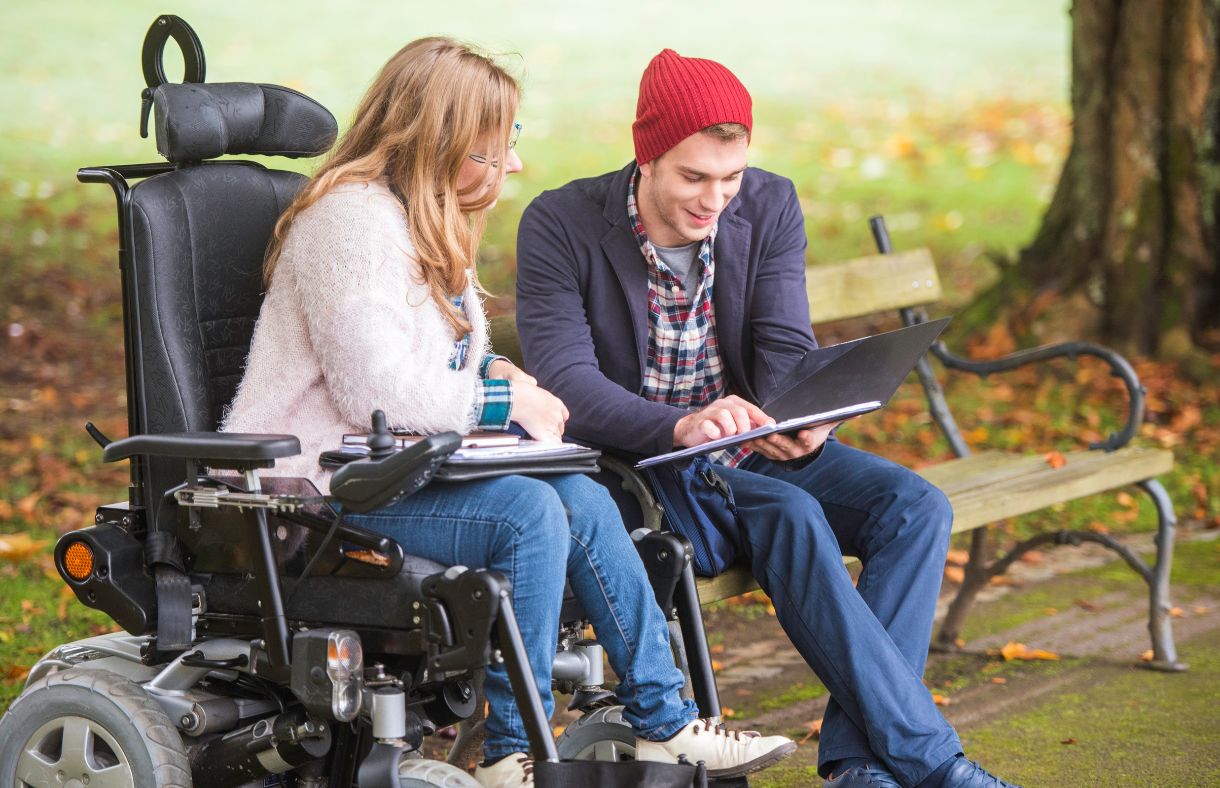Ever hear of “inspiration porn”? It’s a cultural phenomenon that has made “inspiration” a dirty word to some people with disabilities. Typically, it involves highlighting someone who has accomplished something noteworthy and who also uses a wheelchair or has another obvious disability—then captioning their image with “What’s your excuse?”
The Trouble with “Inspiration”
Objection to such “inspiration” is not intended to imply that high achievers with disabilities—the Helen Kellers, Franklin D. Roosevelts, and Stephen Hawkings of this world—deserve any less credit than their “able-bodied” counterparts. The problem with the “What’s your excuse?” approach is what it implies:
- If someone has a disability, unrelated strengths are irrelevant. Everything accomplished is “in spite of” the disability.
- Anyone can (and should want to) do headlines-worthy things if they only try hard enough.
- Disability accommodations are a waste of time and money, because anyone who tries hard enough can “make it” under the current status quo.
Sad but true, “inspiration” can be an excuse to avoid legitimate accommodations. People don’t want or need “try harder” prodding from “encouragers” who are too lazy to reconsider “the way things are.” What is needed, as described by Dr. Lex Frieden (University of Texas Health Science professor, wheelchair user since age 18, and one of the drivers behind the 1990 Americans with Disabilities Act), is “full access to the community. [When the ADA was drafted,] people with disabilities couldn’t get into a movie theater. We couldn’t get up the steps to restaurants. We couldn’t get into the bathrooms at most public facilities, and we felt like we had a right to be fully participating citizens.”

Not “Inspirations” But “Influencers”
One other problem with the “inspiration” approach is that it only recognizes role models who have done extraordinary things—or at least overcome major challenges to do “ordinary” things—and overlooks the everyday influence we all have on those we come in contact with.
“Influencers” is our recommended term for those who have a positive effect by:
- Being closer-up than “inspirers.” Rather than someone to admire from a distance, an influencer is typically a teacher, family member, or someone else who interacts directly and can be counted on for quick personal response.
- Being at least as much about the other party as about themselves. Influencers don’t stand on pedestals as ideals to be imitated; they encourage you to become the best version of your own self.
- Knowing and standing by their values, even when the going gets tough. Influencers are less concerned with public image than with private integrity.
- Showing by example how to overcome obstacles and live effectively. With or without disability, everyone meets major challenges in the course of life: those who meet challenges with stick-to-itiveness, positive attitude, and focused advocacy are those who have meaningful influence.
You don’t have to do anything headlines-worthy to fit that “job description.” You don’t even have to influence a whole classroom of people: every one person makes a difference.
Expert Advice: How to Be an Effective Influencer
The following tips are from Dr. Danielle Sheypuk, psychologist, disability-rights advocate, Ms. Wheelchair New York 2012, and special influencer to young clients entering the world of living independently with mobility impairments.
- It’s important not to let the opinions of others influence you too much. Getting bogged down in what others say can lead to burnout.
- Work your passion. Find what’s meaningful to you and focus on it.
- Look for a greater good, something that improves humanity.
- Be careful you aren’t motivated by selfish or superficial reasons.
- Be really careful with social media and public sharing. Spread accurate information only. Ask yourself: Does this message promote the greater good? Is it true? Is it selfless?
- Have compassion. Reach out to others who may need a helping hand or not be in a good space.
- Take care of all aspects of your life. You need occasional breaks even from your passion. It’s important to have healthy boundaries, to be able to put work aside and focus on other things.
- Everyone needs someone who understands, who can push you to realize your strengths and fully become the person you want to be.
- A disability is nothing to be ashamed of. Affirm your full identity rather than trying to be as “normal” as possible.
- You’re only given this one life: don’t spend it wishing things were different. Look for points of contentment that make you feel good about living.
See also: Education, organization, and parenting apps

